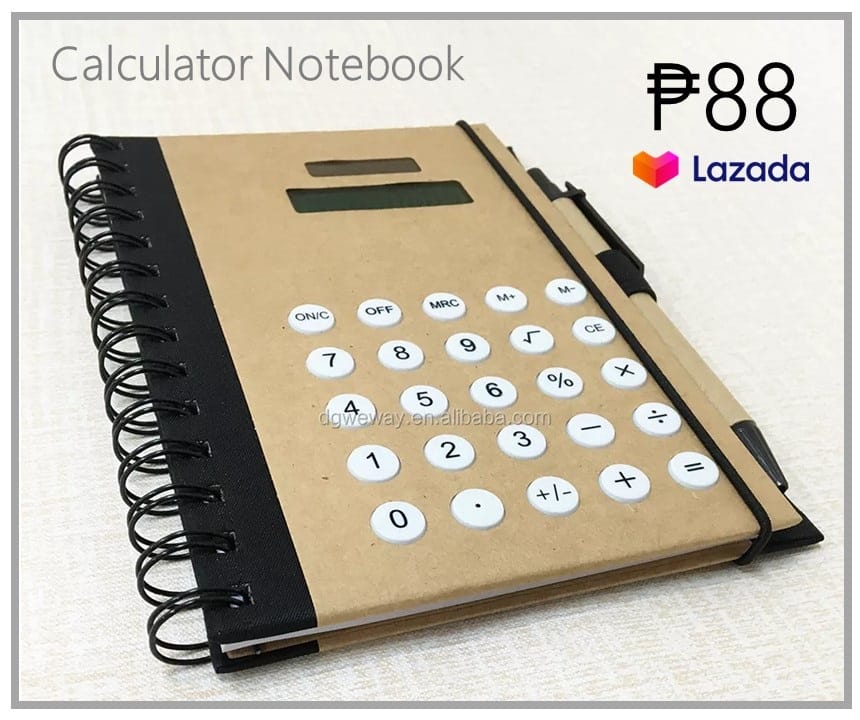Table of Contents
Using supplementary credit cards in the Philippines can help families manage their money and give their dependents the ability to spend. However, it’s important to be aware of the risks. Many people who use these cards don’t fully understand how to manage money. This can lead to overspending and debt that’s hard to deal with. Sharing a credit limit can also cause problems for the main cardholder. People who have a supplementary card might not spend money responsibly, which can make the issue worse.
Another risk of using supplementary credit cards in the Philippines is the chance of fraud or misuse. Because these cards are linked to the main account, any unauthorized spending can affect the main cardholder’s credit score and overall finances. To reduce these risks, it’s important for main cardholders to set clear spending limits and talk to the people with supplementary cards about using money responsibly. Educating everyone about managing money and credit responsibly can help make using supplementary credit cards a helpful financial tool rather than a source of worry.

Understanding Supplementary Credit Cards
Did you know that in the Philippines, supplementary credit cards are like extra cards that can be given to family members or trusted individuals? These cards let the people you trust make purchases and use the same credit limit as the main cardholder. It’s a super handy way to manage household expenses or give financial help to dependents. Plus, these cards usually come with the same perks and rewards as the main card—think cashback, discounts, and loyalty points.
One of the great things about supplementary credit cards in the Philippines is that they help you keep an eye on spending across all cardholders without losing control over your finances. The main cardholder can even set spending limits for each extra card, so you can keep everything within your budget. This setup also encourages financial responsibility among your family members, because they can learn to manage credit wisely while still having access to credit when they need it. All in all, these extra cards are a really effective way for families in the Philippines to share credit resources while making sure everyone is using money wisely.

1. Confusion Over Rewards and Benefits
In the world of financial products, extra credit cards in the Philippines are really popular right now. They’re great for making the most out of your spending power, but sometimes the different rewards can be a little confusing. Each card offers unique benefits like cashback, points, or travel perks, but the rules for earning and using these rewards can be quite different. This can leave cardholders feeling unsure about which card is the best fit for their lifestyle and spending habits.
To make things easier, it’s super important for consumers to take the time to read through the terms and conditions of their extra credit cards in the Philippines. Understanding how each card’s rewards program works can help you make smart decisions about your money. By knowing the specific benefits and any limitations of your extra cards, you can make the most of your rewards and avoid any unexpected surprises. With so many choices out there, having the right information is the key to getting the most out of these financial tools.
2. Risk of Overspending
Just a friendly reminder about the use of supplementary credit cards in the Philippines. It’s a convenient way to share credit with family and friends, but it comes with some risks, especially overspending. Sometimes, the supplementary cardholders might not realize the impact of their spending, which could lead to more debt than the main cardholder intended. This could put a strain on both the supplementary user and the main account holder. So, it’s really important for main cardholders to talk openly about spending expectations and financial responsibilities with everyone involved.
To help minimize the risk of overspending, it’s a good idea to set spending limits and keep a close eye on card usage. This helps main cardholders stay in control of their finances while also promoting responsible spending. Regularly checking account statements and transactions can also help identify where extra guidance might be needed. This proactive approach not only encourages accountability but also helps to improve everyone’s understanding of how their spending habits can affect their finances. Ultimately, the aim is to create a balanced financial situation that benefits both main and supplementary cardholders.
3. Shared Responsibility for Debt
When managing finances with supplementary credit cards in the Philippines, it’s super important for the primary and supplementary cardholders to communicate clearly. The primary cardholder is responsible for all charges on the account, so any debt accumulated by supplementary users can directly impact their credit score and financial standing. To avoid any misunderstandings or unexpected financial burdens, it’s a good idea for both parties to have a clear understanding of spending limits and payment responsibilities. Open communication ensures that everyone is aware of their financial habits and can work together to avoid getting into excessive debt.
Also, creating formal agreements regarding the use of supplementary credit cards in the Philippines can provide clarity and accountability. By setting clear spending limits and expectations upfront, both primary and supplementary cardholders can reduce the risk of financial strain. This proactive approach fosters a sense of responsibility and promotes trust and transparency within the relationship. Ultimately, a well-defined understanding of each party’s roles and responsibilities can help prevent conflicts and ensure that both primary and supplementary users can enjoy the benefits of credit without falling into the pitfalls of debt.
4. Impact on Credit Score
Managing supplementary credit cards in the Philippines is crucial for the primary cardholder’s credit score. One of the most significant influencers of a credit score is credit utilization—a measure of the balance to the available credit limit ratio. When a supplementary cardholder accumulates high balances without making timely payments, it can elevate the overall credit utilization rate for the primary cardholder’s account. A higher utilization rate may hint to lenders that the cardholder is financially overextended, potentially resulting in a credit score drop. Therefore, it’s imperative for primary cardholders to keep a close watch on the spending habits of their supplementary cardholders to ensure that credit utilization stays within healthy limits.
In addition to credit utilization, payment history is a critical factor in maintaining a good credit score, contributing significantly to the credit score calculation. If a supplementary cardholder misses payments or defaults on their responsibilities, this adverse information can impact the primary cardholder’s credit report. Late payments can stay on a credit report for an extended period, significantly affecting the credit score and making it harder to secure loans or favorable interest rates in the future. As a result, primary cardholders should make sure that supplementary credit cards in the Philippines are used responsibly and that all due payments are made on time to protect their credit standing. By promoting responsible usage and maintaining open communication about spending, primary cardholders can safeguard their credit scores against the potential risks associated with supplementary cards.
5. Potential for Fraud and Misuse
Supplementary credit cards in the Philippines offer a convenient method for managing shared expenses among family members or trusted individuals. However, it is crucial to remain vigilant against potential risks such as fraud and misuse. Unauthorized transactions may occur if the primary cardholder fails to monitor account activity closely. To address these concerns, it is imperative for cardholders to implement proactive strategies to safeguard their accounts. This includes conducting regular reviews of account activity to promptly identify any suspicious transactions and setting up transaction alerts for supplementary credit card usage to enable swift action in case of unauthorized activity.
Furthermore, in addition to regular account reviews and transaction alerts, cardholders may consider implementing spending limits on supplementary credit cards in the Philippines. This not only helps minimize the financial impact in the event of misuse but also provides greater control over expenses. Educating supplementary cardholders about responsible card usage and emphasizing the importance of safeguarding card information can further mitigate the risk of fraud. Additionally, leveraging advanced security features such as two-factor authentication and digital wallets can add an extra layer of protection to the cardholder’s financial accounts. By adopting these comprehensive strategies, primary cardholders can take advantage of the benefits of supplementary credit cards while effectively minimizing the potential for fraud and misuse.
6. Limited Control Over Spending Habits
Managing household finances can be quite a task, especially when primary cardholders authorize the issuance of supplementary credit cards to family members or friends in the Philippines. While these supplementary cards can provide convenience, they also have the potential to create unexpected financial burdens if the spending behavior of the supplementary cardholders is not closely monitored. This situation can result in unforeseen expenses, disrupting the primary cardholder’s budget and impacting their financial objectives. To address this risk, it is essential to establish clear spending guidelines that are mutually understood and agreed upon by both parties. Taking a proactive approach in this regard can help ensure that supplementary cardholders respect the financial limits set by the primary cardholder.
Regular check-ins can further bolster financial accountability and facilitate open dialogue regarding spending patterns. Through scheduled monthly discussions, primary cardholders can meticulously review transactions made using supplementary credit cards in the Philippines, providing them with the opportunity to address any concerns and make necessary adjustments to the agreed-upon guidelines. This collaborative effort not only encourages responsible spending but also nurtures trust between the cardholders. Ultimately, implementing these strategies can cultivate a more harmonious financial relationship, reducing the likelihood of financial strain and ensuring that both primary and supplementary cardholders are aligned in their financial approach.
7. Hidden Fees and Charges
When it comes to using extra credit cards in the Philippines, it’s super important for both the main cardholder and the additional cardholder to know about any extra fees. Sometimes, the person with the extra card might not know all the details about the card, which could lead to surprise costs down the line. To avoid this, the main cardholder should really read through all the terms and conditions of the extra card. They should make sure that all the fees, like yearly fees, late payment fees, and foreign transaction fees, are clearly explained to the extra cardholder. Talking openly about how the card is used and its costs can help everyone understand their financial responsibilities and prevent any unexpected expenses.
On top of that, the main cardholder should keep an eye on how the extra card is being used. By regularly checking the statements, they can catch any strange charges or fees that pop up. Using budgeting tools and setting spending limits can also help manage expenses better. Plus, making the most of credit card perks, like rewards or cash back offers, could help balance out some of the fees. In the Philippines, many banks offer great customer service, so don’t hesitate to reach out if you have any questions about fees. By staying informed and taking some proactive steps, both the main cardholder and the extra cardholder can handle the ins and outs of extra credit cards in the Philippines like a breeze, making the whole financial experience way smoother.
How to Mitigate Risks of Supplementary Credit Cards
Supplementary credit cards, a convenient and flexible option in the Philippines, cater to family members and employees by extending the benefits of the primary cardholder. While offering convenience, they also introduce the risk of overspending and the challenge of monitoring expenses. To mitigate these risks, it is crucial to closely manage spending limits and educate users about responsible credit practices. This approach helps minimize the potential financial hazards associated with supplementary credit cards.
Regularly monitoring transactions and setting up alerts play pivotal roles in increasing cardholders’ awareness of their spending habits. These measures not only allow timely interventions when necessary but also contribute to fostering responsible spending behavior. Moreover, enforcing clear payment responsibilities and limiting the number of supplementary credit cards issued can instill order and accountability within the cardholder’s financial management practices.
In addition, leveraging rewards programs judiciously can yield benefits without the looming threat of accumulating excessive debt. By implementing these strategies, individuals and families can confidently harness the advantages of supplementary credit cards in the Philippines while effectively managing and mitigating their associated risks.
Manage Spending Limits:
Set a clear and reasonable spending limit on supplementary credit cards to prevent overspending and accumulating debt.
Educate Users:
Provide thorough guidance to supplementary cardholders about responsible credit usage, including the importance of timely payments and understanding interest rates.
Monitor Transactions:
Regularly review account statements and transactions to quickly identify any unauthorized charges or excessive spending patterns.
Set Up Alerts:
Enable transaction alerts via SMS or email to stay informed about every purchase made with supplementary credit cards.
Reward Use Caution:
Encourage the use of rewards programs wisely, focusing on necessary purchases rather than impulse buys, to maximize benefits without incurring unnecessary debt.
Limit Number of Cards:
Avoid issuing too many supplementary credit cards to a single user, which can lead to confusion and increased risk of financial mismanagement.
Establish Payment Responsibilities:
Clearly define who is responsible for making payments on supplementary credit cards to avoid misunderstandings and late fees.
Wrapping Up: Supplementary Credit Cards in the Philippines
Having supplementary credit cards in the Philippines can be really useful for families or businesses. These cards allow you to share your credit limit with trusted individuals like your spouse or kids, so they can make purchases without needing their own separate accounts. It’s super handy for managing shared expenses and makes the payment process easier. But, it’s important to be careful because it’s easy to overspend if the supplementary cardholders don’t fully understand how it all works.
To make the most of supplementary credit cards, it’s important for the main cardholder to keep communication open with the supplementary cardholders. Set clear spending limits and talk about your financial goals to avoid any issues. Keep an eye on the account activity regularly to avoid unexpected charges and make sure everyone is on the same page with their financial plans. By working together on managing the credit, everyone can enjoy the benefits while avoiding any financial troubles.









